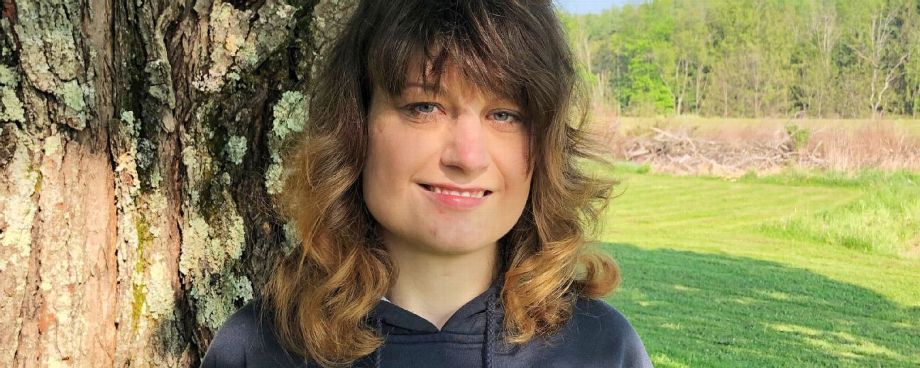
Special Olympics athlete Johanna Schoeneck is on the front lines of the coronavirus
She works second shift at a group home, where she's a direct support professional and helps to care for people who -- like her -- have intellectual and developmental disabilities. She's on the clock from 2 in the afternoon until 11:30 at night most days, so it's almost midnight by the time she's back at her house in Cogan Station, on the outskirts of Williamsport, Pennsylvania.
The night sky doesn't have much to compete with here -- it's just a dark, velvety blanket over the 12 acres of her family's land. She and her two older sisters used to pretend they were Olympic stars on those acres, some 25 years back. They'd haul planks of wood, which became pretend balance beams. They'd propel themselves as high as they could on a swing set, then leap, a creative reimagining of a long jump. Before she'd go on to be a Special Olympics athlete herself, before she'd travel to places like Athens, Greece, to participate in the global Special Olympics World Games -- the biennial competition for athletes with intellectual disabilities -- she imagined herself as an Olympian here, on this stretch of grass, in the middle of Pennsylvania.
She'll pause sometimes, on these nights, look up and think how beautiful all those stars above are. A breath amid such craziness.
Still, the coronavirus snakes its way through the country, and so she comes home through the basement door. She sprays her keys with disinfectant. She sprays the doorknobs. She wipes down her shoes, then her backpack. She strips off the clothes she's worn all day and deposits them in the washing machine. She grabs a towel she leaves out for herself every night, sprays the buttons of the washing machine she touched, then beelines for the upstairs shower.
The virus hasn't come for her group home yet. Even as the country shut down in the middle of March and the number of infected Americans swelled into the millions within two months, even as the death toll passed dark milestones -- 121,000 fatalities in the United States alone as of this writing, according to the Centers for Disease Control and Prevention -- COVID-19 has spared her workplace, and no one on the staff, nor any one of the four residents who call it home themselves, has tested positive.
But because of what she does, and whom she does it for, and how she does it, the threat of the coronavirus looms, ever present. For here is the heart of the dilemma for people with intellectual and developmental disabilities in the time of this pandemic: They are at once more vulnerable to the worst of this virus and less able to escape its clutches.
They're a high-risk population, according to the CDC, more in danger of contracting pneumonia and influenza; more likely to have hypertension and heart disease, diabetes and lung disease. At the same time, some 1 million people across the country use home- and community-based services, many relying on people like Johanna in their own homes or group homes for help to simply live their lives. Hers is an intimate work. Not 6-feet-apart work. Not socially distant work. That means that the scores of people who need to avoid social interaction the most are the same ones who can't avoid social interaction -- indeed, must have it, often to eat and bathe and take medication. To survive.
Johanna always considered herself to be an essential worker. What is an essential worker if not someone who puts medicine in your feeding tube and helps you shower when you can't do it on your own and sits by your side before a CT scan because it's the only way you can keep calm? What is an essential worker if not someone who is in the business of survival?
But she's not an EMT. Or a police officer. Or a doctor. So she always figured her essentialness was more theoretical, less practical. A break-in-case-of-emergency essentialness.
"I'm an essential worker," she thought in the not-so-distant past. "But that's only when the zombies come."
The zombies came.
Loja Oficial de Bacará Fonte do artigo:resultado da quina